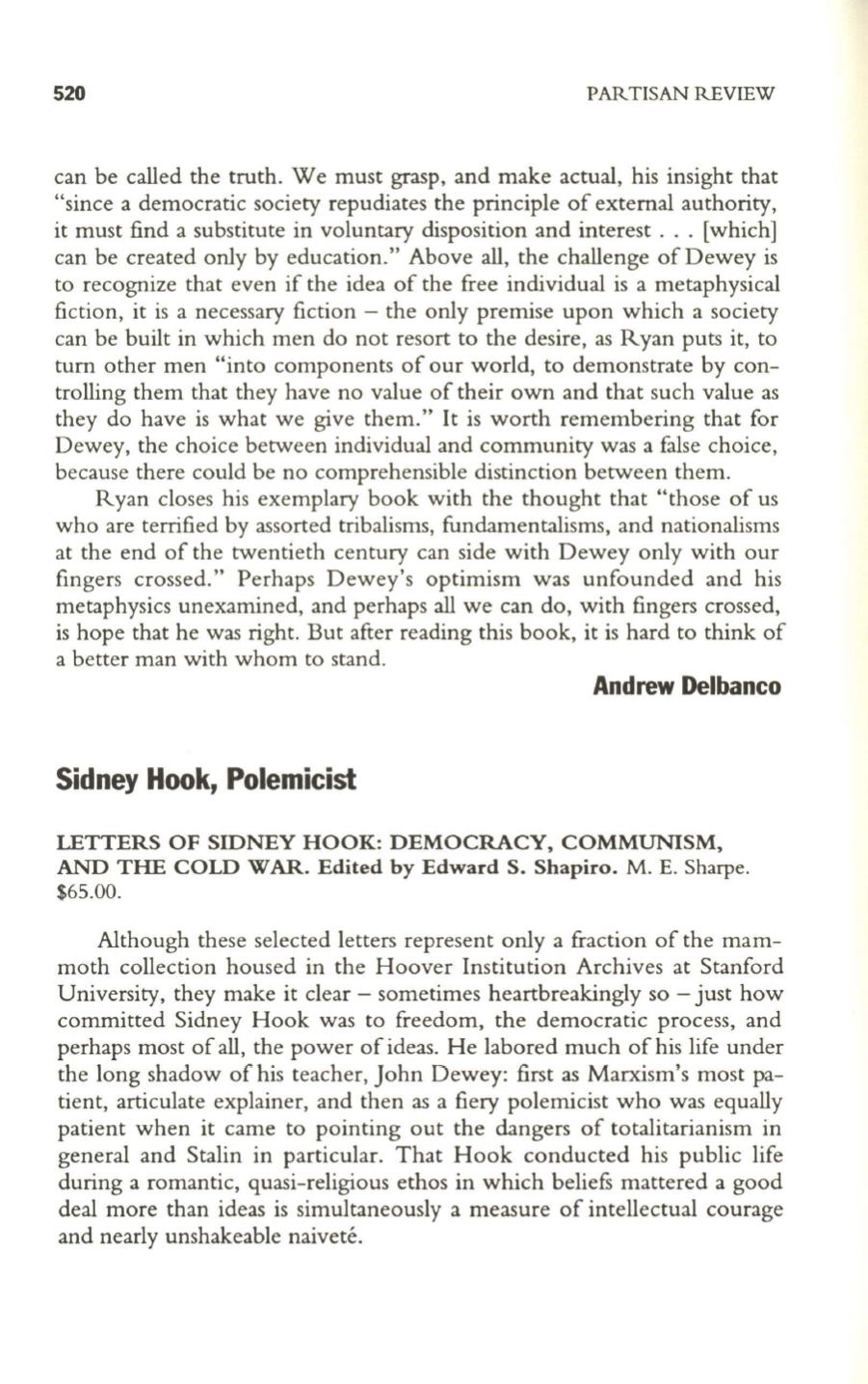
520
PARTISAN REVIEW
can be called the truth. We must grasp, and make actual, his insight that
"since a democratic society repudiates the principle of external authority,
it must find a substitute in voluntary disposition and interest ... [which]
can be created only by education." Above all, the challenge of Dewey is
to recognize that even if the idea of the free individual is a metaphysical
fiction, it is a necessary fiction - the only premise upon which a society
can be built in which men do not resort to the desire, as Ryan puts it, to
turn other men "into components of our world, to demonstrate by con–
trolling them that they have no value of their own and that such value as
they do have is what we give them."
It
is worth remembering that for
Dewey, the choice between individual and community was a false choice,
because there could be no comprehensible distinction between them.
Ryan closes his exemplary book with the thought that "those of us
who are terrified by assorted tribalisms, fundamentalisms, and nationalisms
at the end of the twentieth century can side with Dewey only with our
fingers crossed." Perhaps Dewey's optimism was unfounded and his
metaphysics unexamined, and perhaps all we can do, with fingers crossed,
is hope that he was right. But after reading this book, it is hard to think of
a better man with whom to stand.
Andrew Delbanco
Sidney Hook, Polemicist
LETTERS OF SIDNEY HOOK: DEMOCRACY, COMMUNISM,
AND
THE COLD WAR. Edited
by
Edward S. Shapiro.
M. E. Sharpe.
$65.00.
Although these selected letters represent only a fraction of the mam–
moth collection housed in the Hoover Institution Archives at Stanford
University, they make it clear - sometimes heartbreakingly so - just how
committed Sidney Hook was to freedom, the democratic process, and
perhaps most of all, the power of ideas. He labored much of his life under
the long shadow of his teacher, John Dewey: first as Marxism's most
pa–
tient, articulate explainer, and then as a fiery polemicist who was equally
patient when it came to pointing out the dangers of totalitarianism in
general and Stalin in particular. That Hook conducted his public life
during a romantic, quasi-religious ethos in which beliefs mattered a good
deal more than ideas is simultaneously a measure of intellectual courage
and nearly unshakeable naivete.


